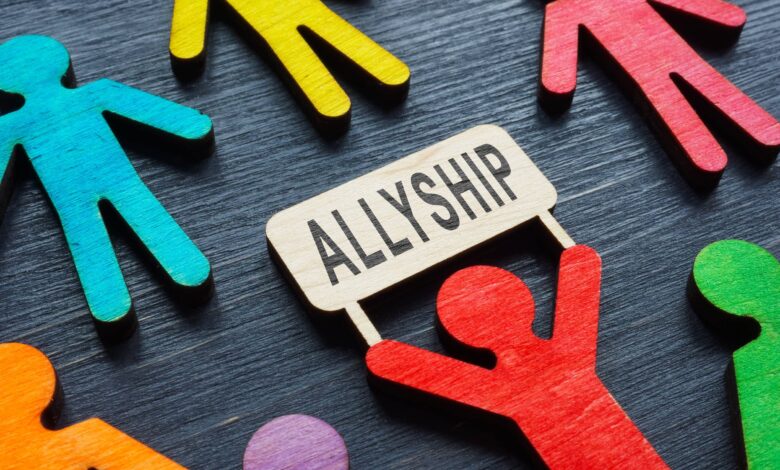How to Be an Effective Ally in Social and Workplace Contexts?

Have you ever wondered what ally means and how you can be one daily and at work? Being an ally is like being a supportive friend who stands up for others, even when they’re different from you. It’s about understanding, respecting, and helping people, especially those who face challenges because of their race, gender, or background. Learn how you can be an effective ally both socially and at work.
Understanding the Meaning of Allyship
First, understand what does ally mean. It’s like being on a sports team where not everyone gets the same amount of cheers. As an ally, you cheers for everyone, especially those who don’t get as much support. Being an ally means you try to understand what others go through, and you stand up for them. It’s not just about believing in equality but also about taking action to help make things fair for everyone.
Listening and Learning
To be a good ally, you need to be a great listener. It’s like a detective trying to understand a story from different clues. Listen to the experiences and concerns of people who face discrimination. This helps you understand their point of view. Learning is also key. Read books, watch documentaries, and attend workshops about different cultures and experiences. It’s like doing homework for a really important subject – the more you learn, the better you can help.
Speaking Up and Taking Action
Being an ally also means speaking up when you see something wrong. If someone makes a hurtful joke or comment, don’t be afraid to say it’s not okay. It’s like being the person in a group who says what everyone’s thinking but is too scared to say. Taking action can also mean joining groups or organizations that fight for equality. It’s like joining a school club that does important work for a good cause.
Supporting Diversity and Inclusion
At work, you can be an ally by supporting diversity and inclusion. This means making sure everyone feels welcome and valued. It’s like ensuring everyone at your lunch table has a place to sit and feels included in the conversation. Encourage your workplace to have diversity training sessions and hire people from different backgrounds. It’s like adding different flavors to a meal – it makes everything richer and more interesting.
Being Aware of Your Own Bias
We all have biases, like invisible glasses that change how we see the world. Being an ally means being aware of these biases and working to change them. It’s like looking in the mirror and being honest about what you see. Try understanding how your background and experiences might shape your thoughts about others. It’s not always easy, but being a fair and supportive ally is important.
Inuit says, “You can be a better ally in the workplace by practicing empathy and communication. When communicating with people from different backgrounds, there may be more opportunities for misunderstanding because of language barriers, lack of shared experiences, or other differences. Part of being an ally is doing your best to see the world through the eyes of those you’re communicating with.”
Being an effective ally in social and workplace contexts means understanding what allyship is, listening and learning, speaking up, supporting diversity, and being aware of your biases. It’s like being a superhero for fairness and kindness. Everyone can be an ally, and it starts with small steps.



